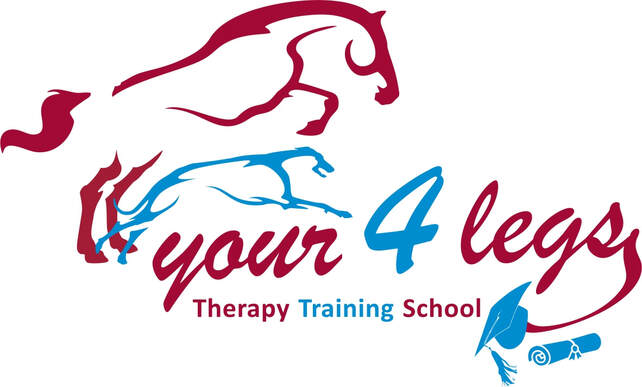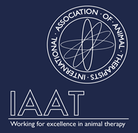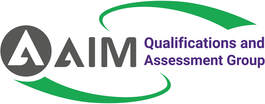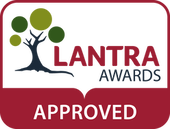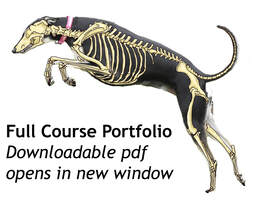Course accreditation and approval
This course can support both career prospects and educational progression routes.
The course is accredited by LANTRA as a customised provision provider. LANTRA is Recognised by Ofqual, the SQA (Scottish Qualifications Authority) and Qualification Wales.
Your4legs Therapy Training School has recently been approved as a recognised provider by AIM Qualifications and Assessment Group. AIM are a leading Awarding (AO) and End-Point Assessment Organisation (EPAO), offering award winning qualifications and nominated end-point assessment services. AIM is regulated by the public regulator governing qualifications in England - Ofqual.
The courses are recognised by the IAAT (International Association of Animal Therapists) as acceptable for both student and practitioner association membership.
The your4legs courses and the training school are fully insured through Holistic Insurance Services.
This course can support both career prospects and educational progression routes.
The course is accredited by LANTRA as a customised provision provider. LANTRA is Recognised by Ofqual, the SQA (Scottish Qualifications Authority) and Qualification Wales.
Your4legs Therapy Training School has recently been approved as a recognised provider by AIM Qualifications and Assessment Group. AIM are a leading Awarding (AO) and End-Point Assessment Organisation (EPAO), offering award winning qualifications and nominated end-point assessment services. AIM is regulated by the public regulator governing qualifications in England - Ofqual.
The courses are recognised by the IAAT (International Association of Animal Therapists) as acceptable for both student and practitioner association membership.
The your4legs courses and the training school are fully insured through Holistic Insurance Services.
Canine Remedial Massage & Rehabilitation Practitioner Course
Canine Remedial Massage and Rehabilitation is a range of complementary therapies, encompassing soft tissue and joint mobilisation, used to help maintain the performance and behaviour and to help with healing and rehabilitation of a dog following injury. Any rehabilitation work will be done under veterinary referral.
This course will give you the knowledge, confidence and clinical reasoning skills enabling you to become a safe, competent, experienced professional canine remedial massage therapist with a good grounding experience in canine rehabilitation.
This course will give you a comprehensive understanding of 10 canine anatomy systems, the fundamentals of therapy and the therapy process, together with a varied range of therapy techniques encompassing –
· Both light and deep tissue massage,
· Massage techniques adapted to warm up the dogs’ muscles in preparation for exercise and cool down the muscles after exercise
· Light touch release techniques (LTR) and soft tissue rolling (by Your4legs) related to trigger points and fascia release
· Joint mobilisation techniques to help improve and maintain range of motion.
· An introduction to rehabilitation – using exercise tools and physiotherapeutic devices to help improve balance, core strength and
proprioception.
An animal can suffer from back, neck, pelvic and musculoskeletal problems that could manifest themselves in several ways, including -
· Becoming un-level or unbalanced during work / play
· Showing changes in claw wear
· Unexplained reduction in performance
· Developing excessive stiffness on one side
· Unexplained muscular asymmetry
· Unexplained behaviour changes during handling – refusing to go for a walk or work, becoming lethargic and tired, biting, or
becoming aggressive and evasive.
Some of the most common areas where massage therapy can be used are:
· Enhancement of quality of life for dogs with degenerative conditions such as arthritis, where therapy can be used to help slow the
condition and manage soft tissue tensions arising from compensation.
· Performance enhancement and treatment of musculoskeletal injuries in the working or competition dog.
· Supporting post-operative rehabilitation for dogs with orthopaedic or neurological conditions.
Some of the conditions that can be helped by Remedial Massage and Rehabilitation Therapy:
· Sore/bruised muscles
· Muscle and tendon strain and tension
· Muscle asymmetry
· Injury to tendons and ligaments of the legs and joints
· Help to optimise post-operative repair
· Help to ease pain in arthritic and diseased joints and slow down further degeneration
· Improving and maintaining range of movement and muscle tone
· Assist wound repair to minimise scarring and proud flesh
· Routine checks and maintenance
This course will give you the knowledge, confidence and clinical reasoning skills enabling you to become a safe, competent, experienced professional canine remedial massage therapist with a good grounding experience in canine rehabilitation.
This course will give you a comprehensive understanding of 10 canine anatomy systems, the fundamentals of therapy and the therapy process, together with a varied range of therapy techniques encompassing –
· Both light and deep tissue massage,
· Massage techniques adapted to warm up the dogs’ muscles in preparation for exercise and cool down the muscles after exercise
· Light touch release techniques (LTR) and soft tissue rolling (by Your4legs) related to trigger points and fascia release
· Joint mobilisation techniques to help improve and maintain range of motion.
· An introduction to rehabilitation – using exercise tools and physiotherapeutic devices to help improve balance, core strength and
proprioception.
An animal can suffer from back, neck, pelvic and musculoskeletal problems that could manifest themselves in several ways, including -
· Becoming un-level or unbalanced during work / play
· Showing changes in claw wear
· Unexplained reduction in performance
· Developing excessive stiffness on one side
· Unexplained muscular asymmetry
· Unexplained behaviour changes during handling – refusing to go for a walk or work, becoming lethargic and tired, biting, or
becoming aggressive and evasive.
Some of the most common areas where massage therapy can be used are:
· Enhancement of quality of life for dogs with degenerative conditions such as arthritis, where therapy can be used to help slow the
condition and manage soft tissue tensions arising from compensation.
· Performance enhancement and treatment of musculoskeletal injuries in the working or competition dog.
· Supporting post-operative rehabilitation for dogs with orthopaedic or neurological conditions.
Some of the conditions that can be helped by Remedial Massage and Rehabilitation Therapy:
· Sore/bruised muscles
· Muscle and tendon strain and tension
· Muscle asymmetry
· Injury to tendons and ligaments of the legs and joints
· Help to optimise post-operative repair
· Help to ease pain in arthritic and diseased joints and slow down further degeneration
· Improving and maintaining range of movement and muscle tone
· Assist wound repair to minimise scarring and proud flesh
· Routine checks and maintenance
